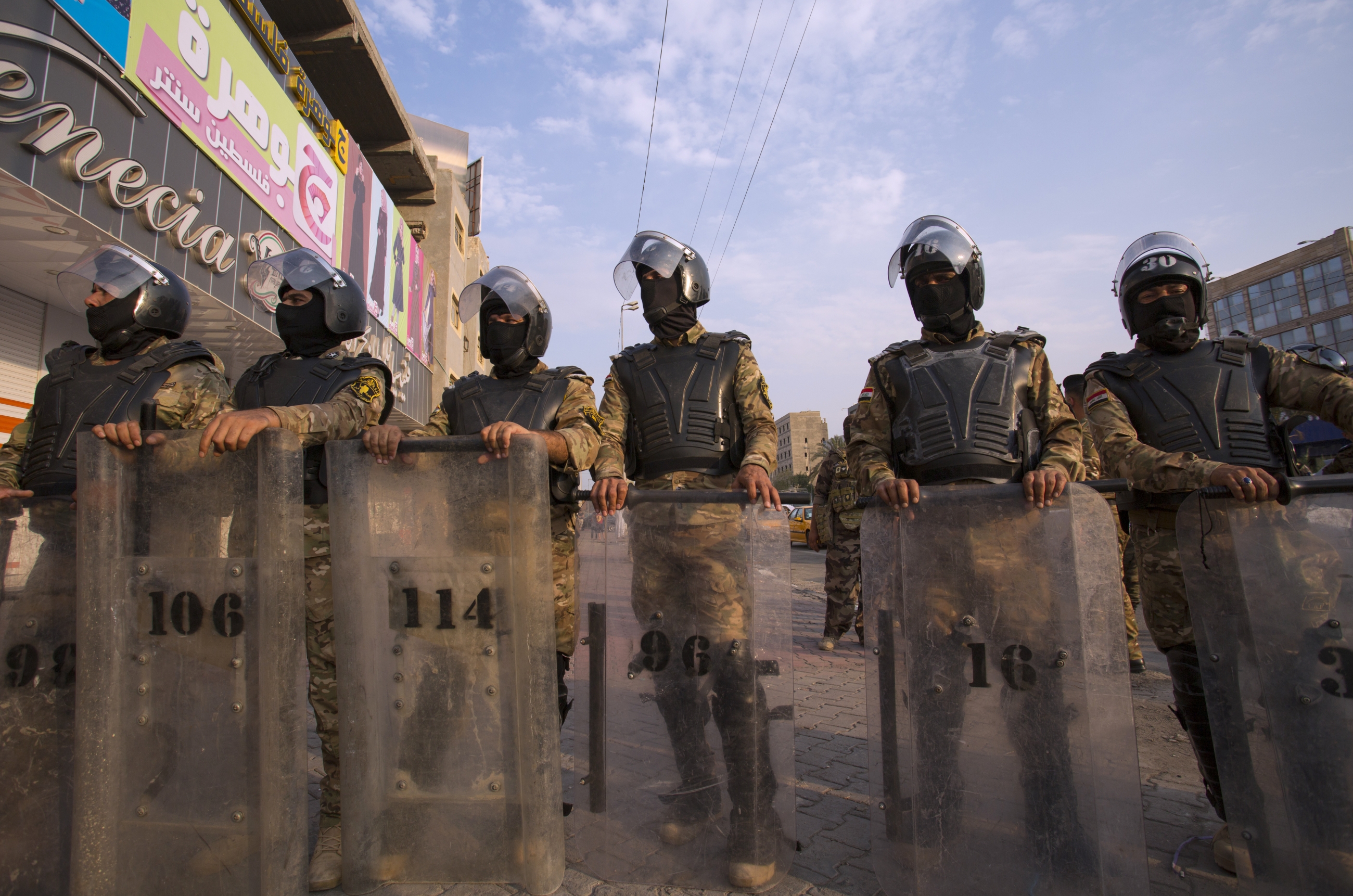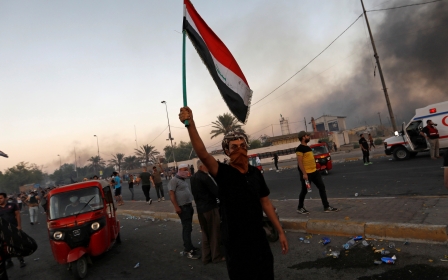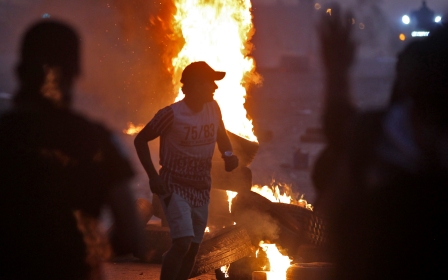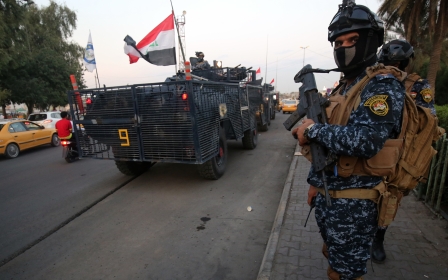Iraqi activists complain of privacy 'violation' as security services monitor phones

The ramping up of repression has continued apace in Iraq as security forces and paramilitaries alike deploy new tactics and measures to subdue and mollify the protests.
With more than 100 dead and 6,000 wounded in almost two weeks of protests, anger has been mounting at the security services' heavy-handed approach.
In Baghdad and southern Iraq, armed groups have been stopping youths at checkpoints and in the streets, asking to check their phones and arresting them if they find any photos or footage related or referring to the protests.
One prominent social media activist based in the city of Nasiriyah, Yousif al-Hashimi, told Middle East Eye that he had witnessed Iraqi security forces stopping three youths and forcefully asking them to give them their phones.
“It was an attempt to arrest anyone who has photos or videos on the phone," Hashimi said.
New MEE newsletter: Jerusalem Dispatch
Sign up to get the latest insights and analysis on Israel-Palestine, alongside Turkey Unpacked and other MEE newsletters
He added that two were arrested and one was released after what he described as a "clear violation" of their personal property.
Another protester based in Baghdad and who preferred to be anonymous told MEE he had faced similar treatment.
“The Iraqi security forces in several of Baghdad’s districts like Dora, Sadr and Shula have stopped people randomly and inspect their phones. They delete the contents and arrest the owner of the phone."
"The government has such talent for finding new tactics to arrest people, but never tried to find a solution to achieve people’s demands.”
Hashimi himself said he had been threatened over his coverage of the protests.
“A day before the demonstration began, a man wearing ordinary clothes stopped me and verbally threatened me not to cover one of October’s protests,” he said.
The man told Hashimi: “If you cover the protests, you will be killed. We know you very well and where you live.”
Iraq’s semi-governmental High Commissioner for Human Rights said that throughout Iraq, 923 people had been arrested during the protests while 449 others were released.
It said at least 107 people had been killed.
A recent report by Human Rights Watch documented how live ammunition, teargas and scalding hot water were used to disperse protesters.
Witnesses have reported snipers placed on rooftops firing upon demonstrators.
Threats in several of Iraq’s cities have already led many activists, journalists and protesters to flee their homes.
Just shortly after the protests began, Iraqi authorities shut off the internet, a tactic which the authorities used to do at every protest in a bid to subdue protests and disconnect the communication means between the demonstrators.
Iraqi political researcher Raad Hashim told MEE that the targeting of individual phones was "a coercive and extra-legal way to break into the individual’s privacy and against human rights’ principles”.
“The government claims its practising democracy. What does this democracy look like when they confiscate people's opinions? It is a dangerous indicator in which one feels insulted and violated in Iraq," said Hashim.
"The Iraqi legal authorities should penalise them."
The Iraqi government has promised numerous reforms in an attempt to calm demonstrators, including plans for housing units distribution, economic support and compensation for families of those killed during the demonstrations.
'I will keep covering the protests until our demands are met'
- Yousif al-Hashimi, media activist
On Friday, Iraq's top Shia cleric Ali Sistani said that the Iraqi government was "responsible for the bloodshed" during recent protests.
In a sermon read out by a representative, Sistani gave the authorities "two weeks" to release the findings of an investigation into protester deaths and called for "an end to threats, beatings, abductions, sniper fire and violence by those who believe they can act with total impunity".
The influence Sistani wields is incalculable in Iraq, but it remains to be seen whether his sermon will have an impact.
"Despite the danger of the situation, they could not suppress my motivation," said Hashimi, of the myriad threats he and other protesters face.
"I will keep covering the protests until our demands are met."
Middle East Eye delivers independent and unrivalled coverage and analysis of the Middle East, North Africa and beyond. To learn more about republishing this content and the associated fees, please fill out this form. More about MEE can be found here.





